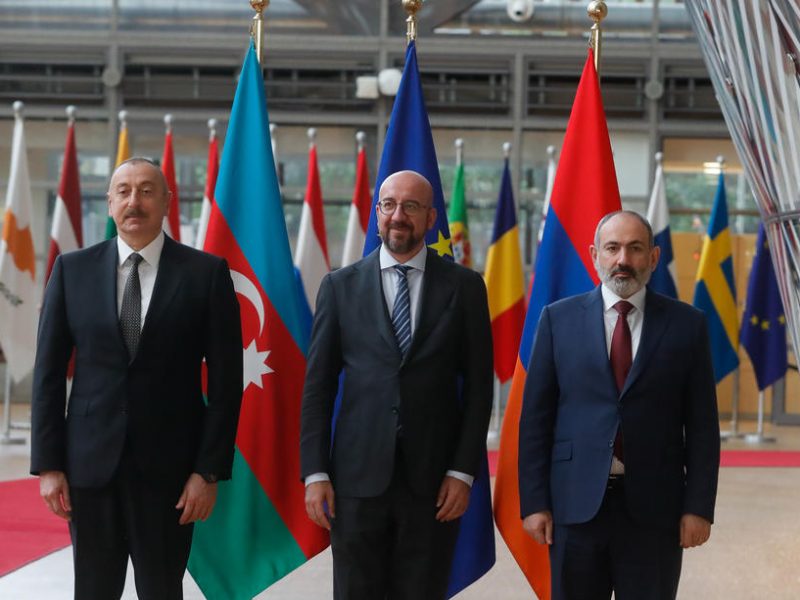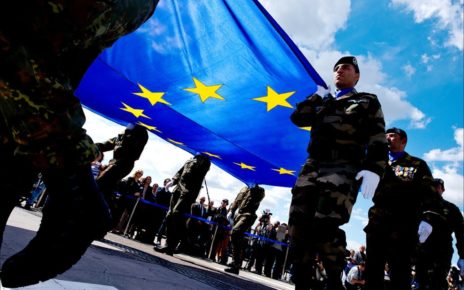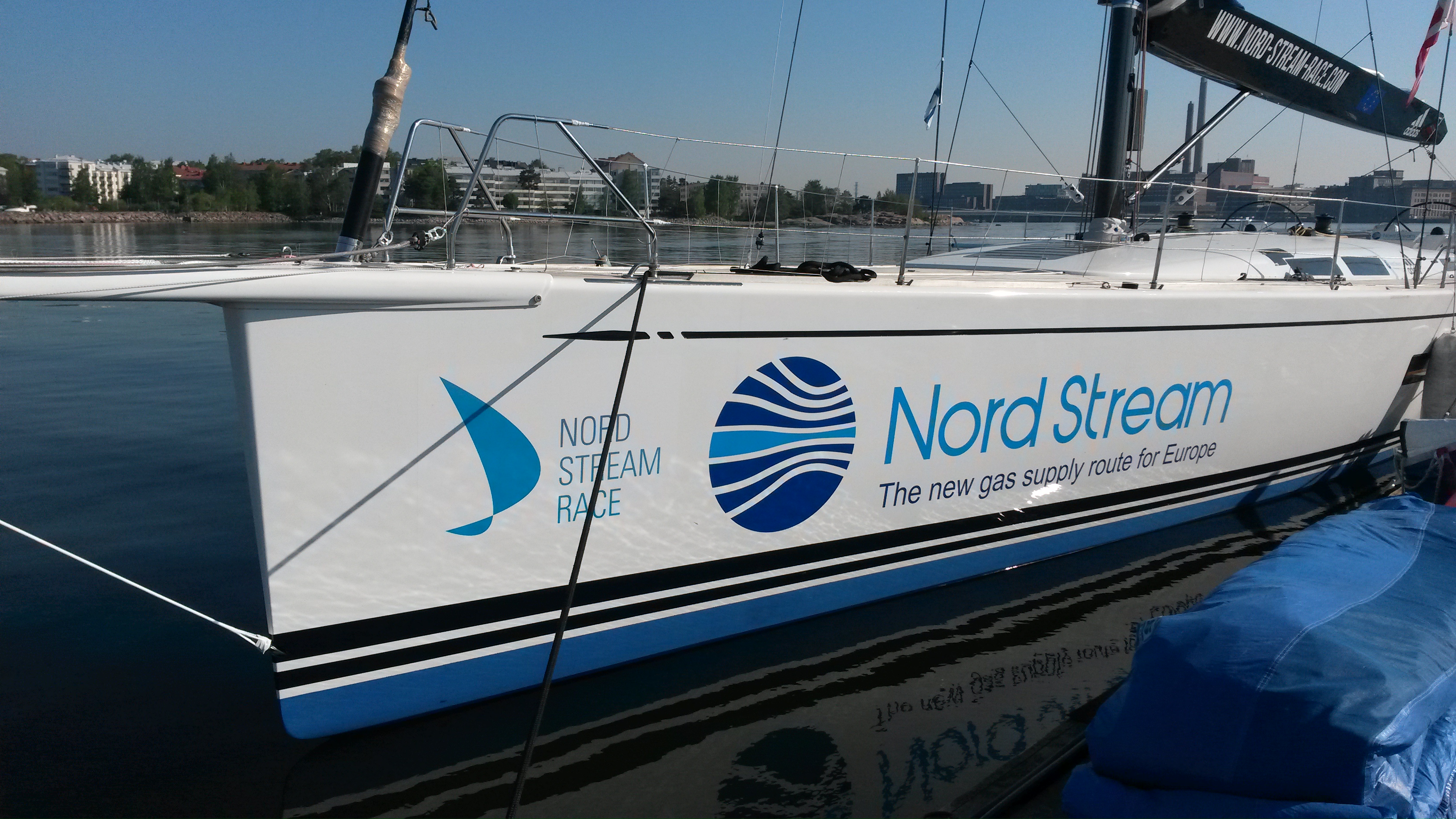During the Prague Summit of October 2022, the leaders of Armenia, Azerbaijan, and Turkey sat together at the same table–an extremely rare sight. Although an informal conversation, this is a milestone after 30 years of hostility and rivalry. It raises hope for a collaborative future, signalling that long-lasting peace is possible in the region, when the paths of both states converge for an economically prosperous future.
Failed attempts at peace in the past
Amid the collapse of the USSR in the 1990s, Armenia and Azerbaijan gained independence. Subsequently, the two states went to war over the region from 1988 to 1994. The war concluded with thirty thousand casualties, Armenia gaining control of Nagorno-Karabakh and occupying 20 per cent of Azerbaijan. The 1994 Bishkek Protocol brokered by Russia marked the ceasefire between Armenia and Azerbaijan for the first Nagorno-Karabakh War.
The breakout of conflict in 2016 and 2020 clearly indicates that the Bishkek Protocol failed. Why? Because the Bishkek Protocol was established as a short-term solution. It was intended to remain as a ceasefire agreement until a resolution was achieved for the Republic of Artsakh, the Armenian-backed administration that ruled over Nagorno-Karabakh. It was not designed for the long term and thus failed to prevent or ease the simmering of tensions.
A full-out war in Nagorno-Karabakh broke out in 2020. Unlike in the 1990s, modern warfare technology was utilized. Drones, long-range shelling, and special operations by both sides made the war more surgical than what it had been three decades ago. It was clear that the ceasefire agreement had been violated once again, but this time there was the question of whether Moscow had any part to play.
In the minor flare ups in 2016, Thomas de Waal who is an editor with the Carnegie Endowment for International Peace, suggests that Moscow had an interest in manufacturing a scenario that would allow Russia to expand soft and hard power in the Caucasus. Russia has a military alliance with Armenia. Russia has also cooperated with the Azerbaijanis, which has enabled Azerbaijan to use billions of dollars generated by oil on building up their armed forces.
Today, Azerbaijan is seen as the victor of the 2020 war. Azerbaijan retained control of the areas it lost in the first Nagorno-Karabakh war, which includes seven districts and the entirety of the Azerbaijan-Iran border.
Perspectives of Armenia and Azerbaijan
Azerbaijan affirms that the Nagorno-Karabakh enclave is Azerbaijani territory under international law, despite having an ethnic Armenian population. The ethnic Armenian population has gained control over the region with the help of the Armenian state. Azerbaijan believes that the local population is working under the directive of the Armenian government and subsequently accuses Armenia of illegally occupying their land.
Armenia accused the Azerbaijani government of unprovoked hostilities and sabotaging peaceful settlements, says former Armenian Foreign Minister Zohrab Mnatsakanyan in a BBC interview. Mnatsakanyan insisted that “Armenia must defend the region.”
What needs to be done for peace
The Nagorno-Karabakh conflict originated from the contestation of land: is it Nagorno to the Armenians or Karabakh to the Azerbaijanis? Azerbaijan cites international law to legitmize its claims and actions. But the United Nations Security Council (UNSC) disapproved of Azerbaijan’s use of force to reacquire its occupied territories. Incidents like these must be settled diplomatically and with the rule of law. The UNSC believes that it is the responsibility of neighbouring states and the Organization for Security Cooperation in Europe (OSCE) to enforce peaceful solutions and thus avoid further conflict.
Border demarcations should be in accordance with international law, and fundamentally recognized by both parties. Each party must be willing to compromise. It should also take into account the recent developments where Azerbaijan emerged as the victor in 2020. In November 2021, the European Union deployed a civilian mission to establish border demarcations but was denied entry by Azerbaijan. Since then, Russia proposed to step in as an alternative. Considering that the region was divided by Soviet authorities, Russian assistance is plausible. However, Russia’s actions today in Ukraine would mean that any peacekeeping efforts would be taken with a grain of salt. As such, impartial committees should take the place.
Border demarcations alone offer a short-term solution. A durable attempt at peace must come in the form of economic cooperation. Currently, Azerbaijan has a huge influx of cash due to oil and gas revenues, whereas Armenia is benefitting from Russian investment. But experts argue that Armenia’s and Azerbaijan’s respective economic growth is not sustainable. For both states to economically flourish, they must engage in economic cooperation. This will not only bring them together at the same table, but also make them co-dependent in the long run, making conflict between the two less likely.
Aside from economic enmeshing, reconciliation efforts must be made. In February 2021, Al Jazeera published an article co-authored by Armenian and Azerbaijani journalists calling for civil society-led reconciliation. The current relationship between the two counties is rooted in mistrust, territorial ambition, and nationalist sentiments. But this can easily be overcome. The Nagorno-Karabakh conflict is that of shared experience, but not always viewed as such. To overcome all the barriers, governments must reach deals on paper and then make way for civilian organizations to enforce and progress.
Photo: Photo: Armenian Prime Minister Nikol Pashinyan (right) and Azerbaijani President Ilham Aliyev (left) are invited by European Council President Charles Michel (centre) in Brussels, Belgium, 22 May 2022, via Euractiv. Licenced under CC BY 2.0
Disclaimer: Any views or opinions expressed in articles are solely those of the authors and do not necessarily represent the views of the NATO Association of Canada.




